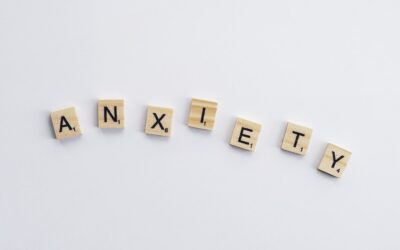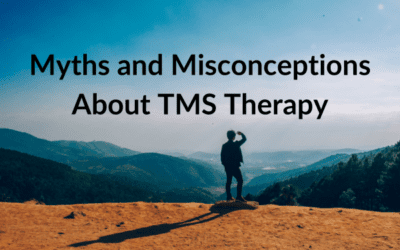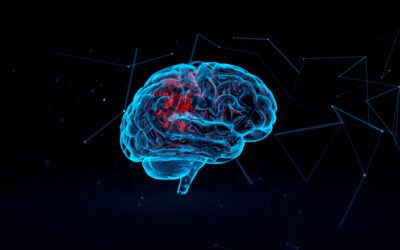What’s behind America’s mental health crisis?

The facts behind America’s mental health crisis
Data presented in the National Survey on Drug Use and Health reports that an estimated 17.3 million adults living within the U.S. suffered at least one episode of major depression in 2018. The CDC cites major depression as one of the most common forms of mental illness plaguing the United States today. What’s causing this alarming trend? Let’s dive into some of the nuances behind one of one of America’s most pressing health crises.
Life is simply more demanding
American workloads are becoming increasingly more demanding while pay often fails to keep up with inflation. Americans have less leisure time than ever before and are either unable or unwilling (due to pressures of their job) to take time off so they can recharge. The Center of Economic Research finds that 25% of private sector workers are not provided paid vacation time throughout the year, while 52% of workers that have paid time off as a benefit fail to use them up by the end of the year. The United States is the only advanced economy in the world that doesn’t have protections in place that guarantee workers paid time off.
Social media changed everything
Social media can be a blessing and a curse, and it becomes more pervasive in our lives with each passing year. In some ways, we’re more connected to each other than ever before. Still, many experts argue that our relationships and sense of community actually suffer as a result. Countless studies have underlined correlations between social media use and a negative effect on mental health, but the most recent studies are finally demonstrating causation. A study published by the Journal of Social and Clinical Psychology showed that adjustments to time spent on social media contributed to measurable effects on feelings of self-work, anxiety, and depression.
Mental health services are in demand, but barriers stand in the way
“42% [of Americans] said that they were unable to access mental health care due to the high associated costs.”
As the stigma surrounding major depressive disorder and other mental health issues fades, more people feel comfortable about reaching out for help. 76% of American adults believe that mental health is just as important as physical health according to a survey conducted by Ketchum Analytics. As demand rises, mental health services remain inaccessible as ever. America’s Mental Health is a yearly study designed to assess trends in the accessibility of mental health in the United States, and their 2018 report paints a pretty grim picture. Out of 5,000 American adults that were surveyed, 42% said that they were unable to access mental health care due to the high associated costs or insufficient medical insurance. Even more alarming: 1 in 4 surveyed adults said that they had to choose between getting mental health treatment and paying their bills.
We’re here to help
Life is hard, but taking care of your mental health doesn’t have to be. If you’re affected by the mental health crisis in the United States, we’ll provide all of the tools you need to get your life back. Give us a call or send us an email to schedule your free consultation and see if TMS is right for you.
Holiday Blues: Understanding and Managing Seasonal Depression
The holiday season doesn’t have to feel overwhelming or isolating. If you or someone you love is struggling with depression, we’re here to help...
Breaking the Stigma: Addressing Men’s Mental Health Challenges
Men’s Mental Health Awareness Month is a crucial reminder that mental health is just as important as physical health.
...Mental Health: When is the Right Time to Seek Help?
It’s important to distinguish between everyday stress and conditions that call for medical treatment.
...Seven Lesser-Known Signs of Anxiety
Anxiety is a common mental health condition that affects millions of people worldwide. While many people are familiar with some of the more well-kn...
Myths and Misconceptions About TMS Therapy
Misconceptions surrounding transcranial magnetic stimulation (TMS) have unfortunately dissuaded patients from considering it as a potential treatme...
Tips For Finding A Qualified TMS Technician
Recommendations from Peers While searching for a TMS technician, seeking referrals and recommendations from trusted sources can truly be invaluable...
The Role of Mindfulness in Managing Anxiety: Tips for Incorporating Mindfulness into Your Daily Routine
In today’s fast-paced world, anxiety has become an all too common experience for many people. It can leave you feeling overwhelmed and discon...
A Guide for 9 Ways to Cope With Anxiety
Anxiety nearly affects almost everybody at some point in life. It is our body’s automated response to a stressful situation—the symptoms of...
Finding Balance: Stress Awareness Month in April
Stress is a natural part of life, but it doesn’t have to control you. This April, let’s focus on managing stress and creating a sense of peace ...
How to Maximize the Results of TMS Therapy
Learn the key strategies to enhance the effectiveness of TMS therapy and ensure a successful therapeutic experience.
...What Is Treatment Resistant Depression and How Can TMS Help?
By harnessing the power of neurostimulation and promoting neuroplastic changes, TMS opens a new chapter in the quest for effective solutions for TR...
Healthy Resolutions For Your Mental Health in the New Year
As we bid farewell to the old and embrace the new, the start of a fresh year often marks a time for reflection and renewal. While traditional resol...
7 Ways TMS Therapy Can Help
Depression is a treatable condition, but standard therapies are ineffective for some forms of the illness. TMS (transcranial magnetic therapy) is o...
TMS Treatment as an Alternative to Antidepressant Medication
TMS is a non-invasive treatment that uses magnetic fields to stimulate the brain, and it has been shown to be effective in treating a variety of me...
Can TMS Help Seasonal Affective Disorder?
Multiple studies have demonstrated that TMS, or Transcranial Magnetic Stimulation, is not only effective but also has long-lasting benefits.
...How to Advocate for Yourself as a Person with Anxiety
By taking an active role in your own well-being, you can make a significant impact on your journey towards healing.
...The Science Behind TMS And Anxiety
What is Anxiety? Anxiety and trauma-related disorders encompass various conditions that involve difficulties in processing fear and subsequent beha...
What Is The Future Of TMS Therapy?
The remarkable advancements in deep brain stimulation techniques have brought about significant breakthroughs in the treatment of major depressive...
Uncovering the Causes of Mental Health Issues in America
National Mental Illness Facts & Statistics According to the National Alliance on Mental Illness, “1 in 5 U.S. adults experience mental illnes...
TMS Therapy – Understanding Its Role In Treating Anxiety and Depression
TMS (Transcranial Magnetic Stimulation) first appeared in the 1980s and has since been FDA-approved to treat mental health issues. This method has ...




















